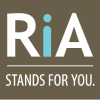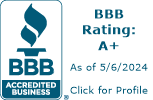As you get closer to retirement, odds are that you’ve been looking for every opportunity to reduce your tax burden in order to preserve your income stream once you’ve stopped working.
But are you sure you’re taking advantage of every opportunity? Sometimes it takes an expert eye and some unconventional thinking to ensure that you’re getting the most out of your retirement. Here are five ways to minimize your tax burden that you may not be aware of.
- Convert your traditional IRAs.
Traditional IRAs make sense for many situations, but if you expect to have lower taxable income now as compared to post-retirement, then it may be good to consider converting them into Roth IRAs. The advantage in paying the tax now is that you may pay fewer taxes overall and not be subject to as large required minimum distributions starting at age 70.5. - Your goal should be 0% capital gains
If you’re a low-income taxpayer, such as when you stop taking a salary, you may be eligible for a 0%, long-term capital gains rate. This applies for individuals whose income falls below $38,600 and couples (filing jointly) under $77,200 (2019).While you may not expect to fall under this category, even those who have significant assets can take advantage of this with advanced planning. By setting yourself up intentionally to fall under this lower bracket for the first few years of retirement, you’ll be able to retain more than you might expect in the long run.
- Prepare for strategic investment withdrawals.
You’ve likely tried to diversify your investments across the three different categories (taxable, tax-deferred, and tax-free). Conventional wisdom and logic would seem to dictate that you should withdraw from your taxable accounts first, then tax-deferred while leaving the tax-exempt accounts until the very end.The problem with this straightforward thinking is that it doesn’t take into account your tax situation year-by-year. While some years it would make sense to follow this pattern, the following year could require a different approach based on your needs.
- Does your 401(k) have unrealized net appreciation?
Net Unrealized Appreciation (NUA) of company stock is the difference between the current stock price and the pric eyou initially paid for the shares held in your 401k plan. You must follow IRS guidelines if you do qualify, but if the NUA is a large portion of your 401k account value, this allows you to take advantage of special tax treatment and can provide you with significant tax savings over your lifetime. - Planning on charitable giving? Make sure it is a Qualified Charitable Distribution.
Most people are now filing their taxes using the increased standard deduction, which prevents them from deducting charitable gifts. But if you make a Qualified Charitable Distribution from your IRA, you could reap the best tax savings for your contribution. It’s also important to note that not all charitable gifts qualify for a tax deduction.
There are many ways to ensure that your tax burden is minimized during your retirement, ensuring that you retain the most of your hard-earned money to allow a comfortable lifestyle. If you have any questions about these tips, or if you are interested in speaking with a wealth planning professional, feel free to contact us at Total Wealth Planning. We’ve been serving clients in the Greater Cincinnati Area and throughout the US for over 30 years. We follow the Fiduciary Standard, meaning that we are required by law to always work in your best interests.







